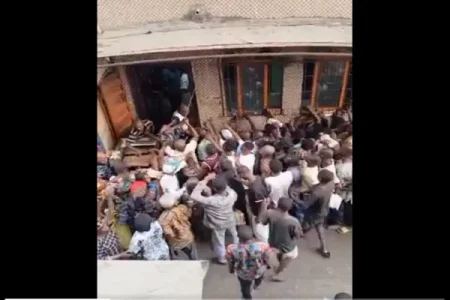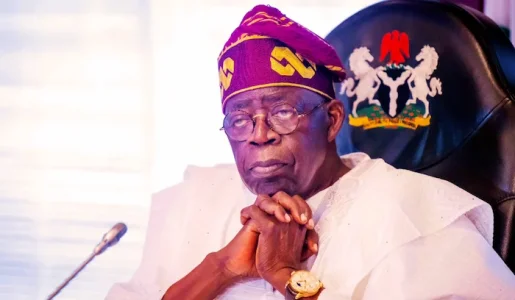
In a disheartening turn of events, residents of Lagos Island gathered in hopes of receiving palliatives found themselves subjected to the sting of a cane along with their much-needed free bread. The distribution, intended to alleviate the economic hardships plaguing the nation, took an unexpected and alarming turn as chaos erupted among the crowd, prompting those in charge to resort to flogging.
A video capturing the distressing scene surfaced on social media, shared by politician and real estate developer Babatunde Gbadamosi. Gbadamosi, a former Lagos State governorship candidate of the African Democratic Party, expressed his dismay in a poignant message accompanying the video. He wrote, "The scenes you are witnessing in this video happened just a few days ago in Lagos Island."
Adding a political dimension to the incident, Gbadamosi highlighted that Lagos Island is the only Local Government Area (LGA) where the All Progressives Congress (APC) managed to secure the highest number of votes during the last elections. Emphasizing the significance of Lagos Island as the headquarters of Yorùbá Ponú worldwide, Gbadamosi pointed out that the individuals facing the brunt of the flogging are predominantly Yorùbá Ponú APC voters.
"The people being beaten into line with canes over a loaf of bread are mostly Yorùbá Ponú APC voters. Political Choices have CONSEQUENCES," Gbadamosi declared, drawing attention to the harsh reality that citizens who supported the ruling party are now enduring physical punishment for seeking basic sustenance.
The video captured a voice in the crowd attributing the flogging to the increased price of bread, saying, "Hey, bread hundred Naira is the reason they are flogging people like this." This statement underscores the desperation and frustration felt by citizens grappling with the economic challenges prevalent in the country.
As the footage circulates, questions arise about the role of political choices in shaping the lives of Lagosians and the extent to which citizens are paying the price for their electoral decisions. The incident raises concerns about the ethical implications of using force during relief distribution and prompts a broader examination of the consequences of political allegiances in the face of economic hardships.




